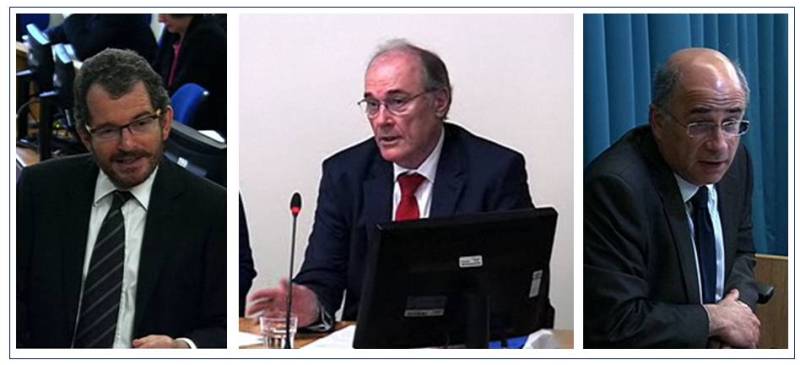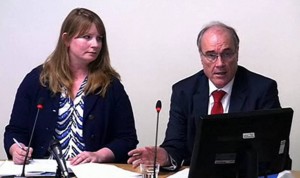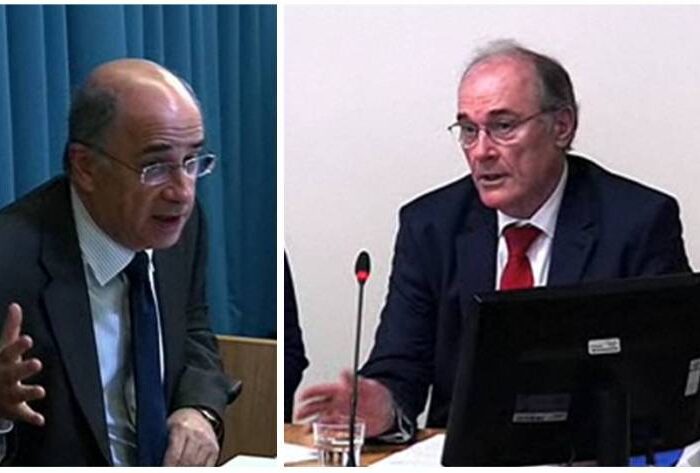
Professor Chris Frost, the Head of Journalism at Liverpool John Moores University, joined a succession of Prime Ministers, media moguls including Rupert Murdoch, top editors, journalists and phone-hacking victims when he took to the hot-seat at the Leveson Inquiry.
He appeared before Lord Leveson at the Royal Courts of Justice in London on Tuesday in his role as Chairman of the National Union of Journalists Ethics Council, alongside NUJ General Secretary, Michelle Stanistreet.
The high-profile inquiry into the culture, practices and ethics of the media brought Professor Frost onto familiar territory, as he is a leading author on the subject and has previously appeared before the UK House of Commons select committee on press regulation.
As Chris began his testimony, Liverpool-born Lord Leveson was keen to stress “for the sake of transparency” that Professor Frost’s appearance was in no way connected to the fact that the distinguished judge was due to accept an honorary award from LJMU on the very next day.
With that coincidence acknowledged, the now-famous cross-examination style of Robert Jay QC came to the fore, as he sought to establish and clarify the key points in the written submissions made on behalf of the NUJ.
A broad range of topics came under scrutiny, including issues such as press freedom v freedom of expression, third party complaints about media coverage, the Press Complaints Commission (PCC), and the role of journalists in shaping what reforming steps may be taken in the wake of the Leveson Inquiry.
On the subject of the right to report, Mr Jay asked Professor Frost: “You make the point that ‘freedom of expression should be given maximum licence but this is not an absolute freedom’. In what way, in your view, is the freedom not absolute?”
Professor Frost replied: “Clearly other people have other freedoms which may come into conflict. The obvious ones are reputation, privacy, fair trial and so on, all as mentioned in the Human Rights Act, and clearly journalists need to balance their – and indeed everybody needs to – balance their right to freedom of expression against those other rights.

“This becomes particularly important for the media, which is in a particular position of power, so that whereas the kind of freedom of expression you and I enjoy when talking to other people can have a little more licence, when it’s driven by a media which is talking potentially to millions, there needs to be much more concern about the rights of others, such as privacy and so on.”
Speaking after the hearing, Professor Frost told JMU Journalism: “It was good to give my views to the inquiry after months of work refining my views based on the research I have carried out over the past 20 years.
“My research has shown that the PCC fails to do what it was set up to do and the public deserves a better system that is more able to protect democracy by supporting better standards in the media.
“A vibrant and free media is vital to democracy, but it must be a media with high standards if the public are to be given the information and analysis they need to make sense of a modern society.”

